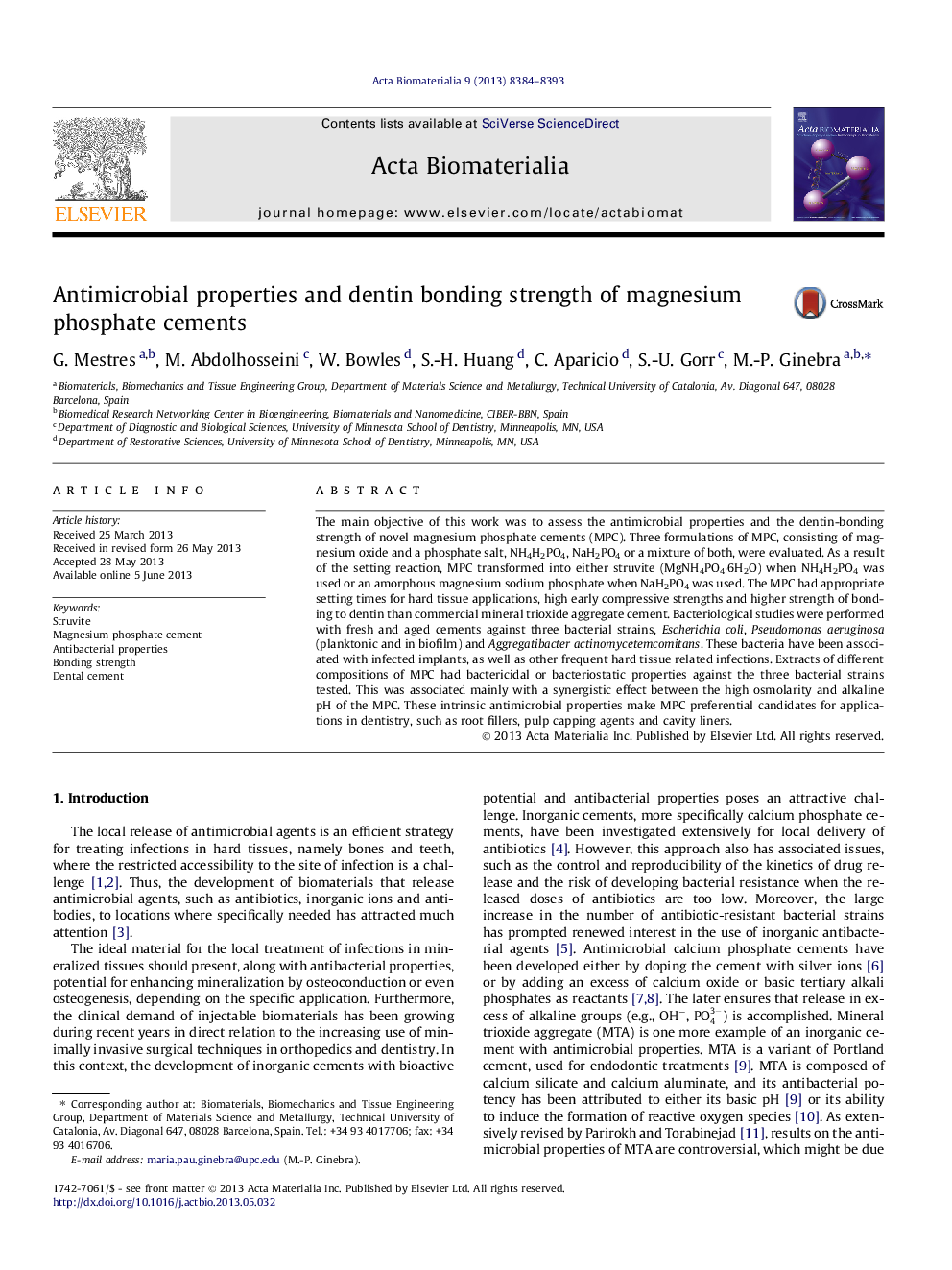| Article ID | Journal | Published Year | Pages | File Type |
|---|---|---|---|---|
| 10159813 | Acta Biomaterialia | 2013 | 10 Pages |
Abstract
The main objective of this work was to assess the antimicrobial properties and the dentin-bonding strength of novel magnesium phosphate cements (MPC). Three formulations of MPC, consisting of magnesium oxide and a phosphate salt, NH4H2PO4, NaH2PO4 or a mixture of both, were evaluated. As a result of the setting reaction, MPC transformed into either struvite (MgNH4PO4·6H2O) when NH4H2PO4 was used or an amorphous magnesium sodium phosphate when NaH2PO4 was used. The MPC had appropriate setting times for hard tissue applications, high early compressive strengths and higher strength of bonding to dentin than commercial mineral trioxide aggregate cement. Bacteriological studies were performed with fresh and aged cements against three bacterial strains, Escherichia coli, Pseudomonas aeruginosa (planktonic and in biofilm) and Aggregatibacter actinomycetemcomitans. These bacteria have been associated with infected implants, as well as other frequent hard tissue related infections. Extracts of different compositions of MPC had bactericidal or bacteriostatic properties against the three bacterial strains tested. This was associated mainly with a synergistic effect between the high osmolarity and alkaline pH of the MPC. These intrinsic antimicrobial properties make MPC preferential candidates for applications in dentistry, such as root fillers, pulp capping agents and cavity liners.
Related Topics
Physical Sciences and Engineering
Chemical Engineering
Bioengineering
Authors
G. Mestres, M. Abdolhosseini, W. Bowles, S.-H. Huang, C. Aparicio, S.-U. Gorr, M.-P. Ginebra,
